Painted stucco is re-coated to look like new with REAL color cement stucco.
We have a permanent method of doing re-coating old walls.
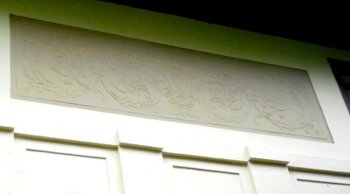
Back in 1914 an ornate cast cement panel was put on. No, we didn't re-coat it.
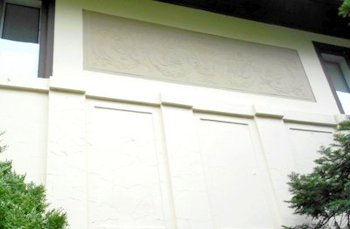
Columns and decorative bands were re-coated.
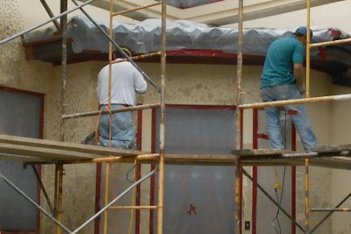
You may have seen our method for re-surfacing painted stucco. We first chip the wall into the basecoat using electric chipping hammers.
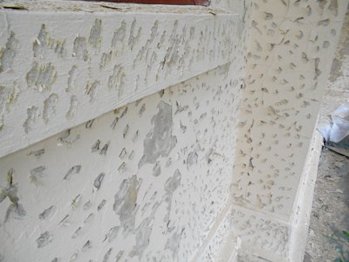
The wall is chipped into the old basecoat
about every three inches or so allowing a good bond with
the new mortar.
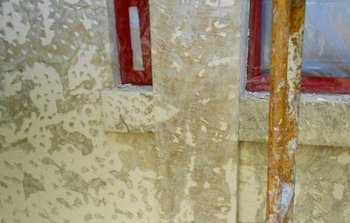
Wall is chipped up and the loose paint is scraped off.
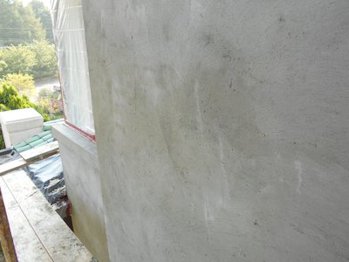
A bonding coat is put on first using Flex-con, an acrylic admixture for adhesion. Flex-con not only makes mortar a stong adhesive, it more than doubles the strength of cement mortar. The surface is roughed up using a rubber float.
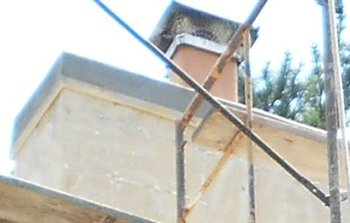
All our chimneys have a band at the top for a drip edge. The original chimney didn't, but we did it anyway. The drip edge extends the life of the chimney by preventing so much water from running down. Water wears a lot, look at the Grand Canyon for example.
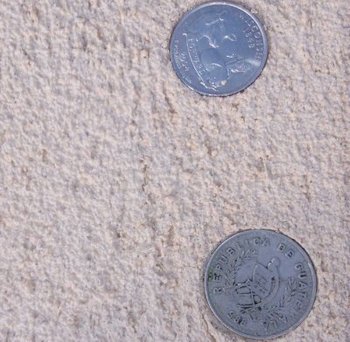
All our chimneys have coins stuck in the top for a time capsule. Here is a Wisconsin quarter and a Quetzal, a coin from Guatemala.
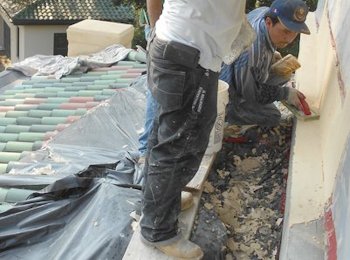
Spanish tile roof is scaffolded by using sand bags. They are under the plastic, so take my word for it.If you walk on tile without sand bags they will break.
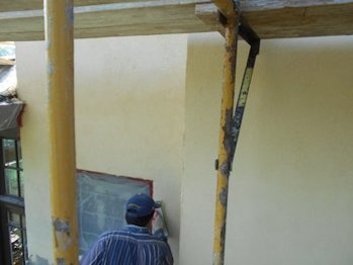
Color cement finish is put on and rubbed with a float.
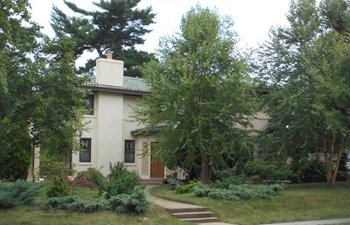
Finished front. We did the right side last year, the left 3 years ago, and the terrace 5 years ago. We'll do the back next year or maybe this year and we'll be done. I used La Habra 53 for the other sides, but this time I got Expo Stucco to cross reference the La Habra color.